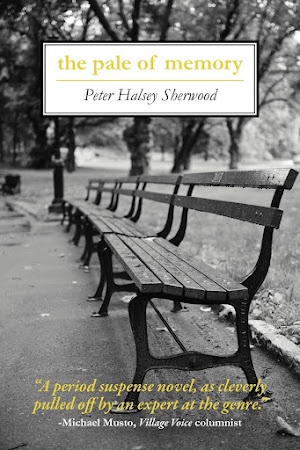 The first thing I ever learned to cook when I was a kid was scrambled eggs. My old cousin (well, she seemed old even then) taught me. If I had to guess, if anybody had such an influence on me growing up, in the kitchen or otherwise, it was Annie. I don't know what creates memories in the minds of children; what causes memory to linger there, or why, nor do I know why influences stemming from memory set up residence alongside any of it. I only suppose it's a random, errant spark cast from a flame that leaps forward and somehow catches.
The first thing I ever learned to cook when I was a kid was scrambled eggs. My old cousin (well, she seemed old even then) taught me. If I had to guess, if anybody had such an influence on me growing up, in the kitchen or otherwise, it was Annie. I don't know what creates memories in the minds of children; what causes memory to linger there, or why, nor do I know why influences stemming from memory set up residence alongside any of it. I only suppose it's a random, errant spark cast from a flame that leaps forward and somehow catches.
I know Annie was unmarried, and already well into her 50s when I was born. She resided in the other side of our house, a symmetrical three-floor duplex built by my ancestors during a time in history when nobody thought the ways of the world would ever change and family members would always just live together in the same house.
Annie was a Home Economics teacher at the local junior high, spoke in a voice that sounded like her tongue was caught in a fan and would tear down hell on me should she find occasion. Whenever I tried to help out with any chore as simple as putting a book back into a shelf, I'd be reprimanded, "That doesn't go there!" or "Why can't you just figure it out?" As a result, I thought I was a frustrating nuisance, of little use to anyone. I was probably about only 5 or 6 years old. She moved me in profound and scarring, hurtful ways when I was so young, and made me feel incompetent, a word I didn't know at the time. Glimpsing upon that grand old mirror of reflection, I don't think she liked men very much at all: I guess I was just a male, such as any other and as the male sex never appeared to be of much use to her, why should I be any different or she be of any fault for that matter? Nonetheless, to me as a child, she was a bitch of the first water.
As memory fits over years such as sheets that I could never properly tuck into the beds on her side of the house, this is what is also true: Annie crafted cookies from scratch, baked buttery pork chops with crushed Ritz crackers, sauteed kielbasa with an orange sauce from Hickory Farms, made grilled cheeses in a new-fangled sandwich press, slathered molasses pantry cookies with cream cheese and in my hometown of Dover, NH, introduced me to the simple wonder of bagels and scones.
Annie also made scrambled eggs, the best scrambled eggs, as I stood on tip-toe to the stove top, to observe. She cracked the eggs into a bowl with abandon, adding butter, salt, pepper and milk, rapidly mixing the ingredients all together with a fork before they were poured into a bubbling, buttered skillet and formed into large curds that created scrambled eggs. Pepperidge Farm white bread was already in the toaster, and popped out, ready to be buttered, just when the eggs were done, to make the perfect sandwich.
Over 30 years later the memories filter through me. I still question what on earth was I to make of her aching, finicky and elegant net, just out of reach, cast over my childhood, stretching only as far as the state lines, perhaps as far as Boston. But as I sat in my apartment on a recent Chelsea morning in New York eating my eggy sandwich on perfectly toasted Pepperidge Farm bread, with way too much butter and thoughts of other mornings, brightly lit, sitting in a childhood nook for breakfast, I couldn't help but feel Annie around me, perhaps even looking down, although I didn't picture her smiling. Despite whatever she tried or didn't try to do, she taught me how to make scrambled eggs.
P.S. Somewhere back in the 90's Annie gave me her Reader's Digest Secrets of Better Cooking cookbook, and I'm still not sure why, other than she had heard I had finally learned to cook, maybe. I absolutely cherish it. Her personal recipe (and God knows our family's favorite) for Disappearing Marshmallow Brownies is tucked in the pages, handwritten in spidery script on lined yellow paper. I don't think anybody really knows where it came from. I've made the brownies many times, only once or twice really successfully, the way she used to make them. But before she died a few years ago, she tried a batch that I had made. She chewed carefully and from her chair, glassy-eyed and unfocused, said she'd give it a "B".
That was one of the last things she said to me, if not the final thing, apart from goodbye, that day, if ever.







You had the eggs, I had the peanuts. The critics do stand out. Maybe they push us in spite of themselves.
ReplyDelete